'Bing It On' is a real turn-off

Microsoft's "Bing It On" marketing campaign is brilliantly conceived, but don't believe the results. The search comparisons leave out the most important piece of information: Location. Another: relationship. In my blind testing Google and Microsoft searches using Bing It On, the comparison is blind at worst, near-sighted at best.
Bing It On is something like the Coke-Pepsi taste tests from the 1970s. People try both without knowing which is which and say which they like better. Here they blind test Bing and Google, with results presented side-by-side, left and right. But because the tests are anonymous, identity and location are missing elements, or they are for me. Also, both services now offer social graph search, which also is missing when tabulating the comparison. But wait! What about news or image searches, which I often do? Blogs and other sources? It's this richness the comparison lacks, so the taste is bland not sweet. As such, I find the comparison to be fundamentally flawed.
Samsung sells 20M Galaxy S IIIs, but did you buy one?
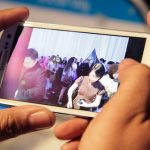
Confession is good for the soul, if nothing more than peace of mind. What better place than before the entire Internet? So we invite you to make your Galaxy S III confession. Yeah, your friends have iPhones and perhaps you feel sheepish about being different -- that you won't fit in for wanting something more, or at least something else. There's no longer reason to hide, or to look at your Samsung smartphone and feel guilty. You're not alone. Today the South Korean electronics giant says Galaxy S III sales topped 20 million in the first 100 days.
Sure, 20,000,000 is a heap big many, but not near the number of iPhones sold -- 28.9 million in just the last quarter, according to Gartner. But don't worry. You're in large enough company to stand out, to confess your S3 love. In May, I posted a buying poll, to which 4,959 of you responded; 63 percent say they will buy (or by now have purchased) Galaxy S III.
Will you buy Nokia Lumia 920 Windows Phone?
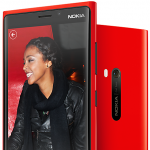
Nokia's fortunes and the future of Windows Phone tie to one device: Lumia 920 running Windows Phone 8. The Finnish handset maker revealed the smartphone yesterday in a joint announcement with Microsoft. This is the Windows phone you waited for, or did you? Perhaps you already gave up and bought Android or iPhone. What I want to know on this sunny September day: Will you buy Lumia 920? If so, when -- and why? If not, why not?
Nokia and Microsoft need Lumia 920 and sibling 820 to succeed. Once the global phone leader, Nokia is now second to Samsung. During Q2, Nokia's global sales share fell to 19.9 percent from 22.8 percent a year earlier, according to Gartner. Meanwhile Microsoft's mobile platform share rose to 2.7 percent from 1.6 percent. But that's behind Samsung's Bada. Combined, Android and iOS have 82.9 percent share, forming a near impenetrable barrier of the likes Microsoft has never seen. Like Windows on PCs, Android and iOS command a broad ecosystem of applications, peripherals, developers, retailers and other services or providers.
Android 4 dulls Droid RAZR's edge
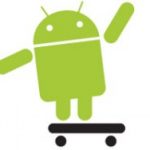
I expect better from Google than this. Its Motorola Mobility subsidiary today announced three seemingly sizzling new Droids coming to Verizon, but they're not running the current operating system but instead will be "upgradeable to Android 4.1 Jelly Bean by end of 2012". We've heard promises like this before on Verizon "with Google" devices. Just ask Galaxy Nexus or XOOM 4G LTE owners about the broken upgrade promises and the long wait for, well, nothing.
Google officially released Jelly Bean in mid-July, when Galaxy Nexus HSPA+ models automatically upgraded, but CDMA models available from Sprint and Verizon did not. Hell, users still clamored to get from Android 4.0.2 to 4.0.4 on Verizon models and couldn't. C`mon, Google, you own Motorola now and should be able to do better. If Verizon is the problem, fix it! Droid users deserve some respect, and you owe them and Verizon, too. Because if not for Droid, the green robot might not be nearly as popular today. Hat tip goes to Apple, too, for helping Android along (next paragraph explains why).
Do you use Google Chrome?
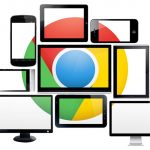
To celebrate Chrome's fourth-anniversary -- well, in beta -- we're asking readers if and why they use Google's browser. The search and information giant released the first public test build, for Windows, on Sept. 1, 2008, with the one-oh release following just three months later. For a company renown for perpetual betas (wasn't it five years for Gmail), the rapid push to release build was uncharacteristic -- and foreshadowing. As Martin Brinkmann explains, Google set a rapid-release cycle -- new versions about every six weeks -- that transformed web browser development.
Yesterday, Tim Conneally told his personal story about using Chrome, starting from the beta. I would like to hear your story, too. You can comment to this post, or, better, email me -- joe at betanews.com. I'd like more than a comment, but your story to which we can put your byline, bio and photo.
Judge Koh should vacate the Apple-Samsung verdict

Jurisprudence demands that US District Judge Lucy Koh right a terrible miscarriage of justice occurring in her courtroom. The Apple-Samsung patent dispute is nothing but a mock trial. The jury ignored key instructions, failed to complete a crucial checklist, made egregious errors on the final verdict form and reached a verdict after 21 hours of deliberations. The foreman misunderstood one of the concepts fundamental to the case -- prior art -- leading the jury astray. Then there is Judge Koh, who prevented Samsung from presenting key evidence or witnesses that could have made its defense and case against Apple more credible.
Apple claims that Samsung copying iOS device designs and patents causes irreparable harm. But the greater injustice is against the South Korean manufacturer, which is branded a copycat and thief -- all while the victim of terrible misreporting by analysts, bloggers, journalists and other writers. Samsung suffers irreparable harm here, not Apple. Judge Koh let this travesty occur on her watch. She should be ashamed and do what this malfeasance demands: Set aside the verdict. Best scenario: She should deny all claims by both parties, and let them sort it all out on appeal. Acceptable: Order a new trial. She let the case get out of control. Time is long past to reel it in.
Finally! More people use Windows 7 than XP

Just in time for Windows 8's debut, its predecessor surpasses the version released 11 years ago. In August, Windows 7 usage finally exceeded XP, according to Net Applications. The operating systems released in September 2009 and October 2001, respectively. In-between, Microsoft shipped ill-fated Vista, which carries stigma reserved for few major Microsoft products -- Bob, Windows ME and Vista, most notably.
NetApps released the findings today, as part of its monthly data dump on browser and operating systems. The methodology isn't exact and, contrary to many other reports, doesn't reflect market share but usage share -- and there is a huge difference. Market share typically measures something finite, such as X number widgets sold over Y time period. Usage share measures, say, the number of people using big screen and little screen TVs, and the same people might use both. More people may now use Windows 7 but some of them may also use XP.
'The Android operating system, clear and of itself was not something that infringed'
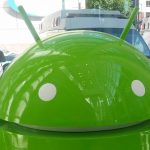
I'm watching a video interview Bloomberg's Emily Chang conducted with Apple-Samsung trial foreman Vel Hogan three days ago. At 9:17, he makes a provocative statement: "The Android operating system, clear and of itself, was not something that infringed".
Do you believe him? I ask, because pundits fell over themselves this week claiming that the jury verdict means big trouble for Android and Google.
Smartphones shipments soar in China, Android benefits
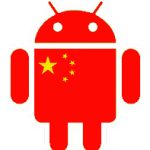
CEO Tim Cook describes China as Apple's second-most important region. For good reason. IDC predicts that smartphone shipments to the People's Republic of China will pass the United States this year. There's the question, which benefits more: Android or iPhone/iOS?
"The PRC smartphone market will continue to be lifted by the sub-US$200 Android segment", Wong Teck-Zhung, IDC senior market analyst, says. "Near-term prices in the low-end segment will come down to US$100 and below as competition for market share intensifies among smartphone vendors. Carrier-subsidized and customized handsets from domestic vendors will further support the migration to smartphones and boost shipments. Looking ahead to the later years in the forecast, the move to 4G networks will be another growth catalyst".
Kindle Fire is so successful, we aren't making any more

I've seen some desperate bone-headed, PR moves before, but Amazon's newest is one to long remember. When Apple announces a press event, the InterWebs erupt with speculation about what it can be. When product inventory is low in stores on some fruit-logo product, rumors explode about something new in the pipeline. Amazon has to work harder, issuing today a press release that Kindle Fire has sold out, ahead of next week's press event. Could the retailer be any less subtle, while revealing sales data that is absolutely nothing but meant to be something.
BetaNews founder Nate Mook nails exactly what's wrong with Amazon's gambit to drum up excitement ahead of the September 6 event. Earlier today he forwarded the Kindle-Fire sell-out email, writing: "It's SOOOO successful. So we're not making any more". That sums it up.
Samsung is such a copycat

Well, I must agree with the jury in the Apple-Samsung patent trial, after seeing the shocking look-a-likes the South Korean electronics giant announced yesterday during IFA Berlin. Have you seen these Apple rip-offs? Samsung simply is shameless in its copying.
For example, there's a new phone with large screen and stylus, as well as another with big zoom lens. The audacity of Samsung to take features from iPhone or iPad and offer them on its devices. The company just thumbs its nose -- or whatever gesture they use on the Asian peninsula -- at the American jury and US District Judge Lucy Koh.
Why we love Steve Jobs
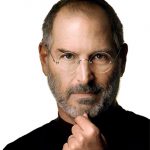
In about six weeks, the InterWebs will flood with posts commemorating a tech visionary's passing. Steve Jobs died on Oct. 5, 2011. A year ago last week, he stepped down as Apple's CEO. Jobs is a colorful, iconic, flawed figure, who stands before us something more than mere mortal. That's because his public life has a literary quality that cuts to the core of our humanity.
I got to thinking more about this today following a discussion with colleague Tim Conneally and questions answered for a CNN reporter about Microsoft (apologies to him, I removed those sentences and use them here). I asked Tim today: "Why is Steve Jobs so endearing? Redemption. What's that term in fiction about the hero's journey? Steve Jobs followed the path in real life". There's something Shakespearean, too -- the fatal flaw that humbles greatness. Mixed together, his story should be a great fictional work. But it's better and haunting being real life.
Microsoft opens Windows Azure Mobile Services public preview
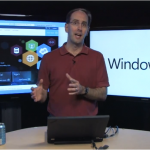
Add this one to the Smart column. Earlier today, Microsoft unveiled Windows Azure Mobile Services, initially for Windows 8 apps, with support planned for Android, iOS and Windows Phone. The concept is a natural extension of Azure as development platform. Hey, why should Microsoft let Amazon and Google build out the infrastructure enabling the cloud-connected device era to trample the PC?
For now, the new service is available in a "public preview", during which time the first 10 Windows 8 apps are free. Developers who don't have an Azure account can create a 90-day free trial one.
Get SkyDrive for your Android

Well, Microsoft certainly took long enough. SkyDrive for Android is now available. I guess it takes nearly 65 percent mobile OS market share for the software giant to notice. Yeah, the wait is over. If you love Android but not Google Drive, or even Dropbox, Microsoft's cloud locker is your ticket.
There's real sense to this belated release. By market share, most everyone using a smartphone will have Android, while those on PCs most likely will have Windows (and likely Office, too). Windows 8 makes Microsoft Account the required identity, which also unlocks services like SkyDrive. But most mobile users will have Android or iOS, which combined mobile operating system sales share was 82.9 percent in second quarter, according to Gartner. Windows Mobile/Phone: 2.7 percent, or just behind Samsung's Bada. So likely lots more Windows 8 users with required Microsoft Account will have Android or iOS than Windows Phone. Hey, late is better than never, right?
Microsoft's new logo doesn't tell the whole story

Last week, I asserted that "Microsoft's new logo is branding fail". Seventy comments later, there is fierce debate among readers. But a branding expert's response catches my interest most of all.
"This is clearly a company who is afraid to take a big step forward -- be bold and innovative", Jason Cieslak, Siegel+Gale managing director, tells BetaNews. "The mark is fresher and more contemporary, yet at the same time, conservative and a bit dull".
Joe's Bio
Joe Wilcox is BetaNews executive editor. His motto: Change the rules. Joe is a former CNET News staff writer, JupiterResearch senior analyst, and Ziff Davis Enterprise Microsoft Watch editor.
Ethics StatementBetaNews, your source for breaking tech news, reviews, and in-depth reporting since 1998.
© 1998-2025 BetaNews, Inc. All Rights Reserved. About Us - Privacy Policy - Cookie Policy - Sitemap.
